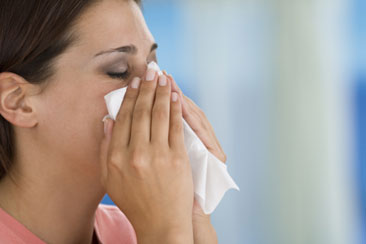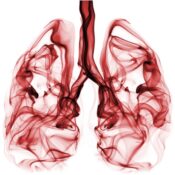Do you sneeze and wheeze all spring long?
“Warm weather causes tree and grass pollens to flourish, leaving millions sneezing and sniffling,” says allergist Dr. James Sublett of the American College of Allergy, Asthma and Immunology (ACAAI). “If spring allergy symptoms are hurting your quality of life, you may want to see an allergist to determine your specific allergies and find the right treatment to stop your symptoms.”
Here are some dos and don’ts about springtime allergies from the ACAAI:
Don’t spend blindly on over-the-counter medications. You may think you know what’s causing your allergy symptoms, but more than two-thirds of spring allergy sufferers actually have year-round allergies. Do get an accurate diagnosis and discuss which treatment options might be best for you with an allergist. Some OTC treatments can be very effective. Immunotherapy (allergy shots and sometimes pills), can actually cure allergies, and keep you out of the drug store aisles for good.
Don’t delay taking allergy medicines until your symptoms are making you miserable. Do pay attention to the weather, and have a ready supply of the medication that worked for you in the past. Start taking it just before the weather turns warm and pollens and molds are released into the air.
Don’t invite trouble—steer clear of your allergy triggers. Finding the right treatment is important, but it’s also critical to avoid whatever is triggering your symptoms. Do keep windows shut if you have a pollen allergy. Take a shower when you come inside and stay indoors during midday when pollen counts are highest.
Don’t eat foods that aggravate sniffles and sneezing. If your mouth, lips, and throat get itchy and you sniffle and sneeze after eating certain raw or fresh fruits or other foods, you may have “oral allergy syndrome.” Do be aware that oral allergy syndrome affects about one-third of those with seasonal allergies. It occurs when the immune system reacts to similar proteins found in pollen and food. If you are allergic to tree pollen, you may need to avoid apples, cherries, pears, apricots, kiwis, oranges, plums, hazelnuts, and walnuts. Cooking or peeling the food may help, but first consult an allergist.
For more information about allergies and asthma, and to find an allergist near you, visit www.AllergyandAsthmaRelief.org.
Coming next week on Medical Update: Herbal Remedies for Seasonal Allergies.
Become a Saturday Evening Post member and enjoy unlimited access. Subscribe now



